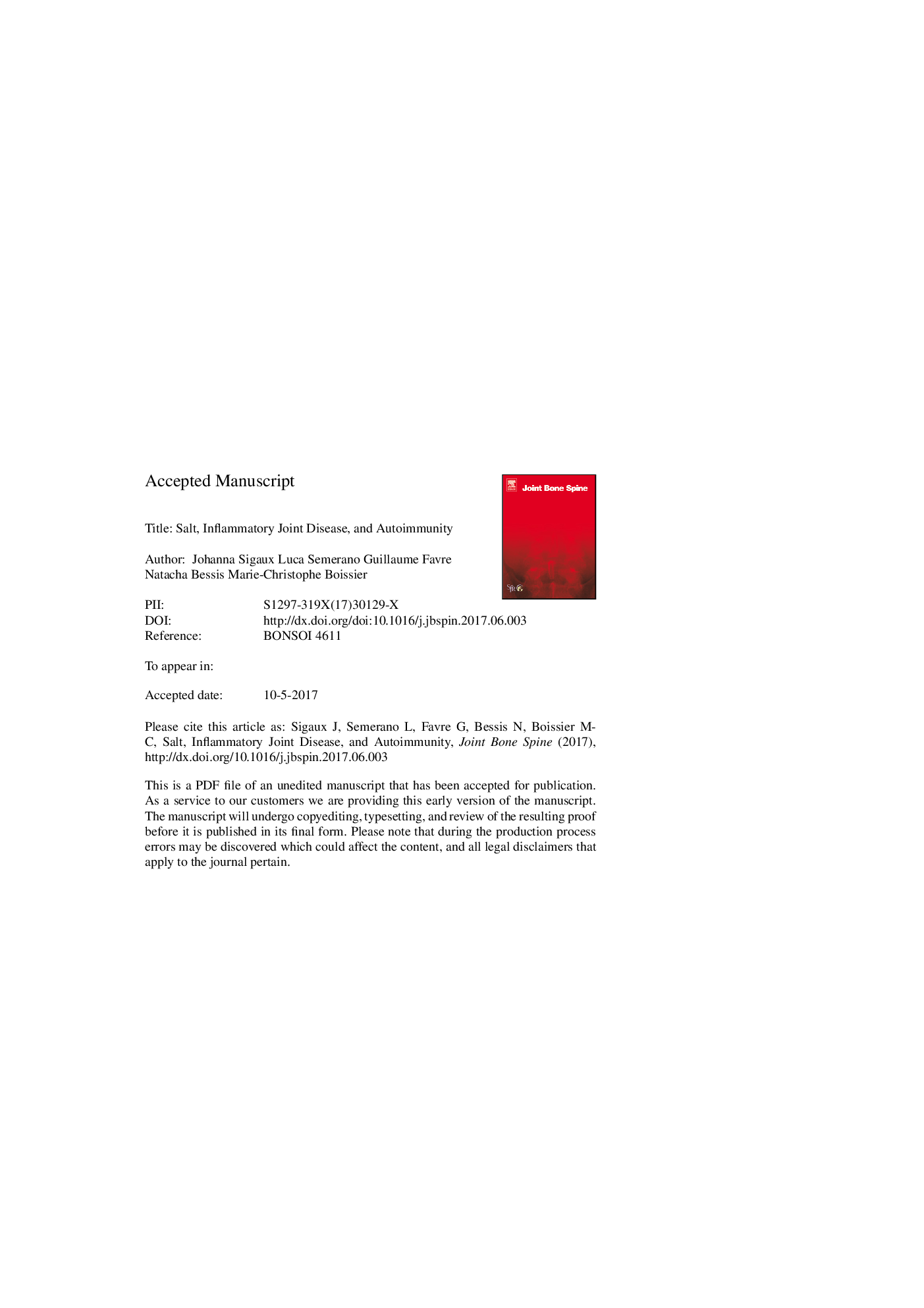| کد مقاله | کد نشریه | سال انتشار | مقاله انگلیسی | نسخه تمام متن |
|---|---|---|---|---|
| 8739202 | 1592203 | 2018 | 25 صفحه PDF | دانلود رایگان |
عنوان انگلیسی مقاله ISI
Salt, inflammatory joint disease, and autoimmunity
ترجمه فارسی عنوان
نمک، بیماری مفصلی التهابی، و خود ایمنی
دانلود مقاله + سفارش ترجمه
دانلود مقاله ISI انگلیسی
رایگان برای ایرانیان
کلمات کلیدی
موضوعات مرتبط
علوم پزشکی و سلامت
پزشکی و دندانپزشکی
ایمونولوژی، آلرژی و روماتولوژی
چکیده انگلیسی
Salt is a vital nutrient. Excess salt intake, however, has recently been blamed for triggering and/or worsening certain autoimmune diseases. In vitro, the cells involved in innate and adaptive immune responses exhibit an inflammatory profile when placed in hypertonic saline. More specifically, macrophages release increased amounts of proinflammatory cytokines, produce reactive oxygen species, and become capable of activating the inflammasome. T helper cells, via activation of serum and glucocorticoid-regulated kinase 1 (SGK1), overexpress IL-17A and IL-23R and differentiate into Th17 cells; whereas regulatory T cells lose the inhibitory capabilities needed to preserve self-tolerance. The data from animal models of autoimmune diseases and human patients are less consistent. SGK1 has been implicated in polarization toward the Th17 phenotype, which worsens conditions such as multiple sclerosis, systemic lupus erythematosus, autoimmune colitis, and transplant rejection. Observational epidemiological studies of patients with multiple sclerosis have demonstrated an association between excessive salt intake and a higher number of flares. Excessive salt intake is associated with a higher risk of developing rheumatoid arthritis, particularly in smokers. These data suggest that salt may stimulate certain immunological processes. Studies are therefore needed to assess the potential influence of dietary habits on the development and progression of autoimmune diseases.
ناشر
Database: Elsevier - ScienceDirect (ساینس دایرکت)
Journal: Joint Bone Spine - Volume 85, Issue 4, July 2018, Pages 411-416
Journal: Joint Bone Spine - Volume 85, Issue 4, July 2018, Pages 411-416
نویسندگان
Johanna Sigaux, Luca Semerano, Guillaume Favre, Natacha Bessis, Marie-Christophe Boissier,
